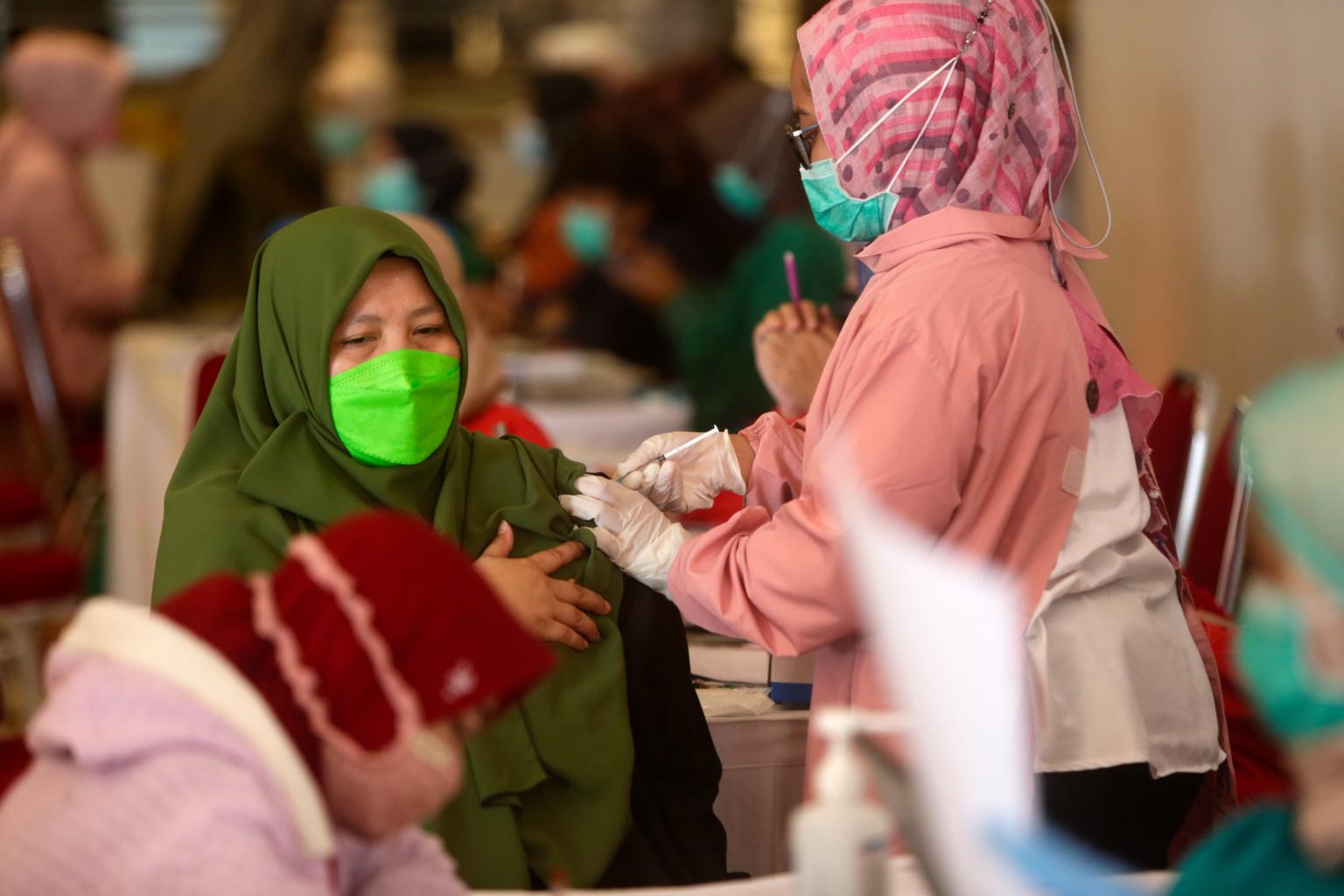Indonesia's Covid-19 vaccination drive on track, but elderly still hesitant about getting jab
Sign up now: Get insights on Asia's fast-moving developments

Indonesia planned to start vaccinating the general population only in July.
PHOTO: EPA-EFE
JAKARTA - Indonesia is doing relatively well in vaccinating the general population, although many of its elderly remain hesitant about getting the jab.
Only 2.7 million of the country's elderly population had been vaccinated by early May, just one-eighth of the 21.5 million set as the target earlier.
This is despite the fact that a number of privileges has been extended to seniors to encourage them to be vaccinated, including allowing them to turn up at any designated facility across the sprawling archipelago for a jab without prior registration.
Community mosques and schools have also been activated as part of the government's efforts to make it convenient for everyone to get the jab.
"A lot of the elderly are not aware of the coronavirus vaccines... so we come to them," Dr Siti Nadia Tarmizi, a spokesman for the national vaccination programme for Covid-19, told The Straits Times. "Some of them wanted their children to get the shots first."
Indonesia planned to start vaccinating the general population only in July. The inoculation programme kicked off in mid-January for those deemed to be high priority, such as health workers, the police and military, and other public workers getting the jab in earlier batches.
The proportion of Indonesia's total population that has received at least one dose of a vaccine as at May 4 was 4.64 per cent, according to ourworldindata.org and SDG-Tracker, the joint effort between the University of Oxford and non-profit organisation Global Change Data Lab.
The figure for Indonesia is the highest among countries in South-east Asia with a population of more than 20 million.
Malaysia recorded 2.83 per cent, Thailand 1.65 per cent, the Philippines 1.54 per cent, and Vietnam 0.6 per cent. Myanmar had 1.84 per cent as at March 31, the latest data available.
Indonesia has a two-pronged approach in its vaccination programme - free vaccines for the wider public and private inoculations for employees funded by private companies. Each programme is allocated different vaccine brands.
China's Sinovac is the vaccine sourced by the government, which has also secured supplies of AstraZeneca from the global Covax facility. Both these vaccines come under the free programme.
The first shipment of China's Sinopharm vaccine arrived on April 30 and this will be distributed for the private programme.
Many elderly Indonesians have cited transport costs to clinics as the reason for not being vaccinated, prompting the government to set up booths at public places in local neighbourhoods, such as community mosques and schools, to make it convenient for them. Community leaders and school alumni associations were roped in to help with distributing the official flyers.
Mr Ibrahim, a keeper at Al-Muchlishin mosque in West Jakarta, told The Straits Times that last week, more than 40 elderly people came forward to get their jabs during an event organised by the Jakarta government's health department and local community leaders.
But he is not sure if there would be a similar event soon, saying that this would be dictated by the response from residents in the area.
An official at Al-Azhar mosque, the largest in South Jakarta which had an event for the elderly last month, also told The Straits Times that nothing similar was scheduled for the foreseeable future.
"Many elderly are plagued by this attitude: We are old and our time is near. If we die, we die. This is a hard challenge," a senior Health Ministry official, who spoke on condition of anonymity, told The Straits Times.
"We are considering going ahead, starting the free vaccine programme later this month (two months earlier than planned)," he added, pointing out that the government had ample vaccine stocks now from those earmarked for the elderly.


